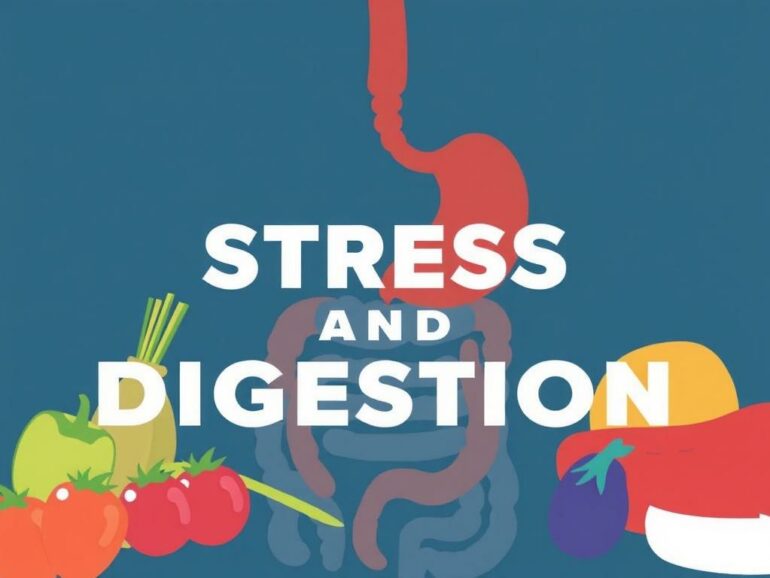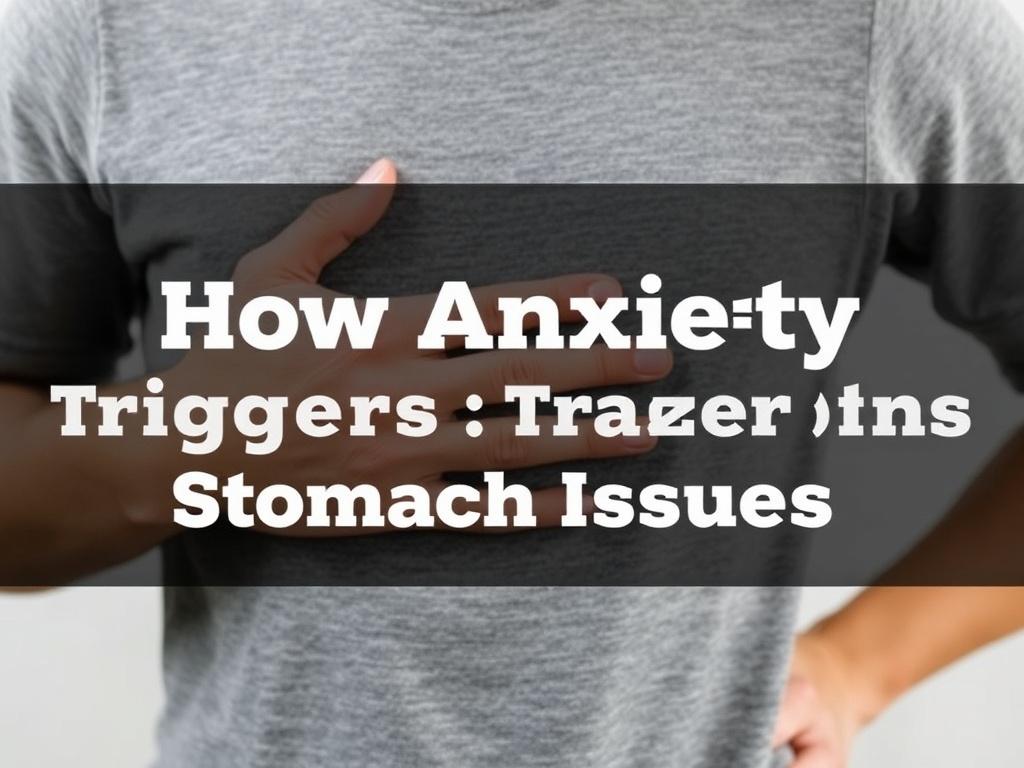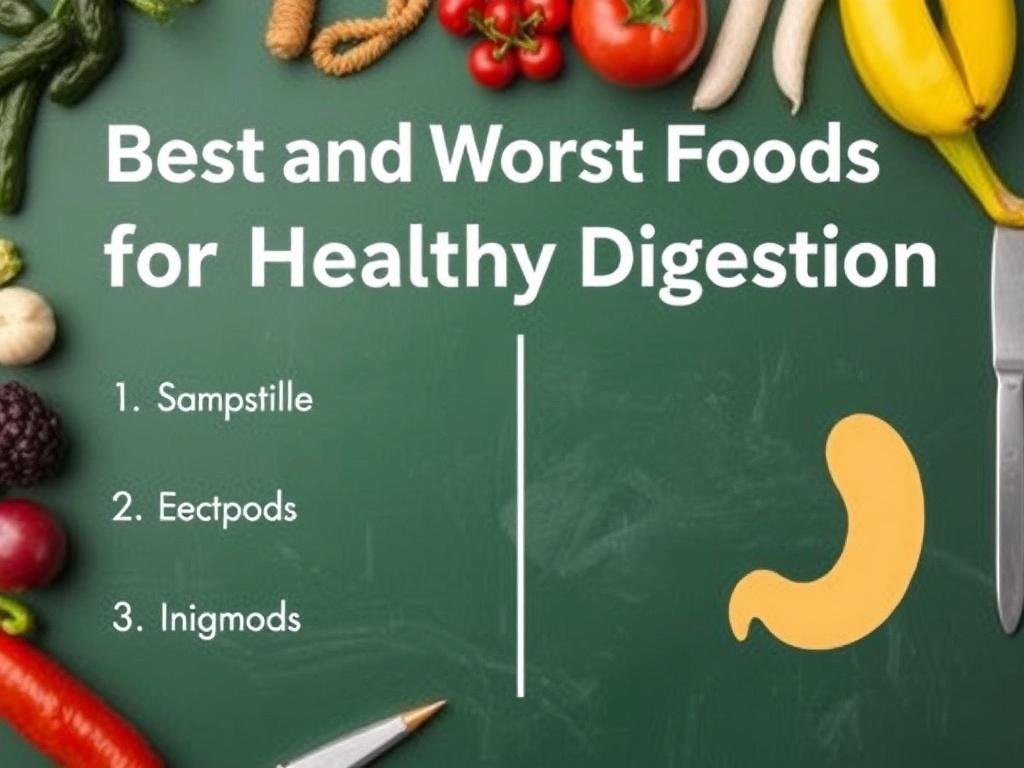Have you ever noticed that when you’re feeling anxious or stressed, your stomach starts acting up? It might feel like butterflies, cramps, or even nausea. This common experience isn’t just a coincidence—stress and digestion are deeply interconnected. Our bodies are masterfully designed to respond to what’s happening around us, but when anxiety kicks in, it can throw your digestive system out of balance. Understanding how stress and digestion influence each other not only explains those uncomfortable gut feelings but also opens the door to better managing both your mental and physical health.
In this article, we will explore the fascinating relationship between stress and digestion, uncovering how anxiety affects your gut health. We’ll explain the science behind this connection, look at the common digestive symptoms triggered by stress, and discuss practical strategies to calm both your mind and your stomach. Whether you experience occasional stress or struggle with chronic anxiety, knowing how it impacts your digestive system can empower you to take control and feel better.
The Gut-Brain Connection: More Than Just a Metaphor
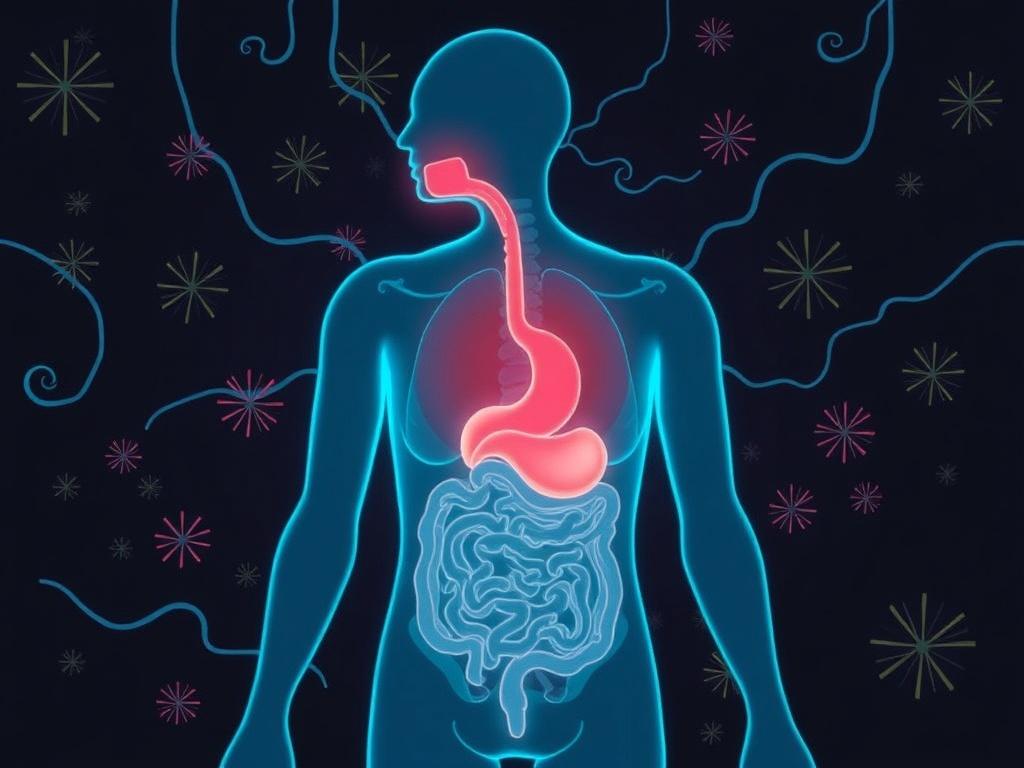
When we talk about stress and digestion, it’s important to understand the gut-brain axis—a complex communication network linking the central nervous system (the brain and spinal cord) with the enteric nervous system (the gut’s own nervous system). Though the brain influences the gut, the gut also sends messages back to the brain, which is why your mood can affect your digestion and vice versa.
This connection means that stress doesn’t just stay “up in your head.” Instead, it can trigger a cascade of biological responses throughout your body. A key player in this system is the vagus nerve, which serves as a communication highway between the brain and the digestive tract. When anxiety activates your nervous system, it can disrupt this communication, leading to digestive symptoms like cramps, bloating, or changes in appetite.
How Stress Signals Affect Your Digestive System
When you feel anxious, your body initiates its “fight-or-flight” response. This survival mechanism shifts blood flow away from the digestive organs toward the muscles and brain, preparing you to either confront or flee from danger. Although helpful in acute situations, chronic stress or anxiety keeps this system activated, which is not beneficial for digestion.
- Reduced blood flow to the gut: This can slow digestion, leading to symptoms like constipation or indigestion.
- Increased gut sensitivity: Stress heightens your awareness of sensations in your gut, amplifying discomfort or pain.
- Shifts in gut bacteria: Anxiety can alter the balance of bacteria in your intestines, affecting digestion and immune function.
- Changes in digestive enzymes: Stress may reduce the production of enzymes necessary for breaking down food.
All these factors combined explain why anxiety mirrors itself in digestive disturbances, often creating a vicious cycle where digestive discomfort increases stress levels further.
Common Digestive Symptoms Triggered by Anxiety

If you experience stress-related digestive issues, you’re not alone. Millions of people around the world notice their gut reacts strongly when anxiety strikes. Here are some of the most common symptoms linked to stress and digestion problems:
| Symptom | Description | Why Stress Causes It |
|---|---|---|
| Stomach cramps | Intense or uncomfortable muscle contractions in the stomach region. | Heightened gut sensitivity and muscle tension caused by stress signals. |
| Bloating | A feeling of fullness or swelling in the abdomen often accompanied by gas. | Altered gut bacteria and slowed digestion lead to gas buildup. |
| Heartburn and acid reflux | Burning sensation in the chest or throat due to stomach acid rising. | Stress affects stomach acid production and esophageal sphincter function. |
| Diarrhea | Frequent, loose, or watery bowel movements. | Stress speeds up intestinal motility, preventing proper water absorption. |
| Constipation | Infrequent or difficult bowel movements. | Reduced gut motility and altered enzyme secretion due to stress. |
| Nausea | Unsettling sensation in the stomach that can lead to vomiting. | Brain-gut signals affected by anxiety cause stomach unease. |
Not everyone experiences the same symptoms in the same way, but anxiety is often a major contributing factor when digestive issues flare up without a clear medical cause. Recognizing these signs is an important step toward figuring out how to treat them.
Why Chronic Stress Is Particularly Hard on Your Digestive Health
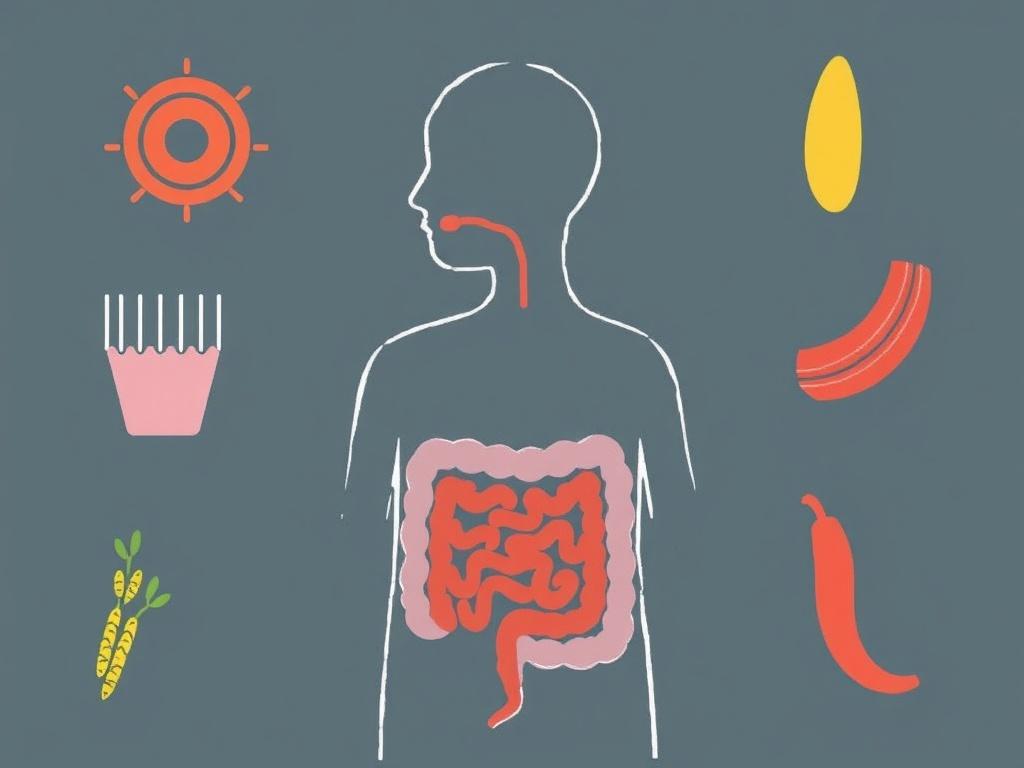
We all face stress from time to time, and the occasional bout of anxiety usually doesn’t cause long-lasting damage. However, when stress becomes chronic, the effect on digestion can be far more serious. The body’s overactive stress response keeps the gut in a state of dysfunction, leading to ongoing discomfort as well as increased risk for digestive diseases.
Chronic stress and anxiety are known to exacerbate conditions like irritable bowel syndrome (IBS), inflammatory bowel disease (IBD), and gastroesophageal reflux disease (GERD). In these disorders, stress triggers flare-ups, intensifies symptoms, and hinders treatment success. Additionally, ongoing stress can weaken the immune system within the gut, leaving you more susceptible to infections or inflammation.
The Role of Cortisol in Stress and Digestion
Cortisol, often called the “stress hormone,” rises in your blood during anxiety. While cortisol helps your body respond to immediate threats, persistently elevated cortisol disrupts the delicate balance required for healthy digestion. It affects gut barrier function, meaning toxins or bacteria can leak through intestinal walls, causing inflammation and discomfort.
Prolonged cortisol exposure also impairs nutrient absorption and reduces the production of digestive enzymes, which may lead to fatigue and nutritional deficiencies. Managing cortisol levels through stress reduction techniques not only benefits your mental health but also supports your digestive system’s ability to function properly.
Practical Ways to Calm Your Gut and Your Mind

Since anxiety can significantly affect your gut health, blending stress management with gut-friendly habits is the best strategy for relief. Here are some evidence-based approaches to improve both your digestion and your mental well-being:
Mindfulness and Relaxation Techniques
Practicing mindfulness meditation, deep breathing exercises, or progressive muscle relaxation can help lower stress hormones and soothe your nervous system. These methods improve gut motility and reduce pain perception, making digestive symptoms less intense.
- Guided meditations: Available via apps or videos, help focus your mind away from worries.
- Breathing exercises: Slow, deep breaths activate the vagus nerve and promote digestion.
- Yoga and tai chi: Movement combined with mindfulness is great for reducing tension.
Nutrition Tips for Stress and Digestion
What you eat makes a huge difference in managing stress and supporting your digestive tract. Here’s a breakdown of some gut-friendly nutrition strategies:
| Nutrition Tip | Why It Helps | Suggested Foods |
|---|---|---|
| Eat fiber-rich foods | Fiber helps regulate bowel movements and nurtures beneficial gut bacteria. | Fruits, vegetables, whole grains, legumes |
| Include probiotics | Probiotics restore a healthy bacterial balance disrupted by stress. | Yogurt, kefir, sauerkraut, kimchi |
| Stay hydrated | Water supports digestion and reduces constipation. | Plain water, herbal teas |
| Limit caffeine and alcohol | Both can irritate the gut and increase anxiety. | Avoid excess coffee, energy drinks, alcoholic beverages |
| Smaller, more frequent meals | Eating smaller portions helps prevent bloating and indigestion. | Three main meals plus healthy snacks throughout the day |
Regular Exercise to Ease Anxiety and Improve Digestion
Physical activity is a natural stress reliever and supports healthy bowel movements. Whether it’s a brisk walk, swimming, or a dance class, regular exercise reduces cortisol and encourages a balanced gut flora. Just be careful not to overdo intense workouts, which can sometimes add stress to the body.
Seeking Professional Help When Needed
If your digestive symptoms persist or severely affect your life, it’s important to consult a healthcare provider. Professionals can help rule out underlying diseases, offer guidance specific to your needs, and may recommend therapies like cognitive behavioral therapy (CBT) to address anxiety. Sometimes, medications or specialized gut treatments are necessary to break the stress-digestion cycle.
The Takeaway: Stress and Digestion Are Inextricably Linked
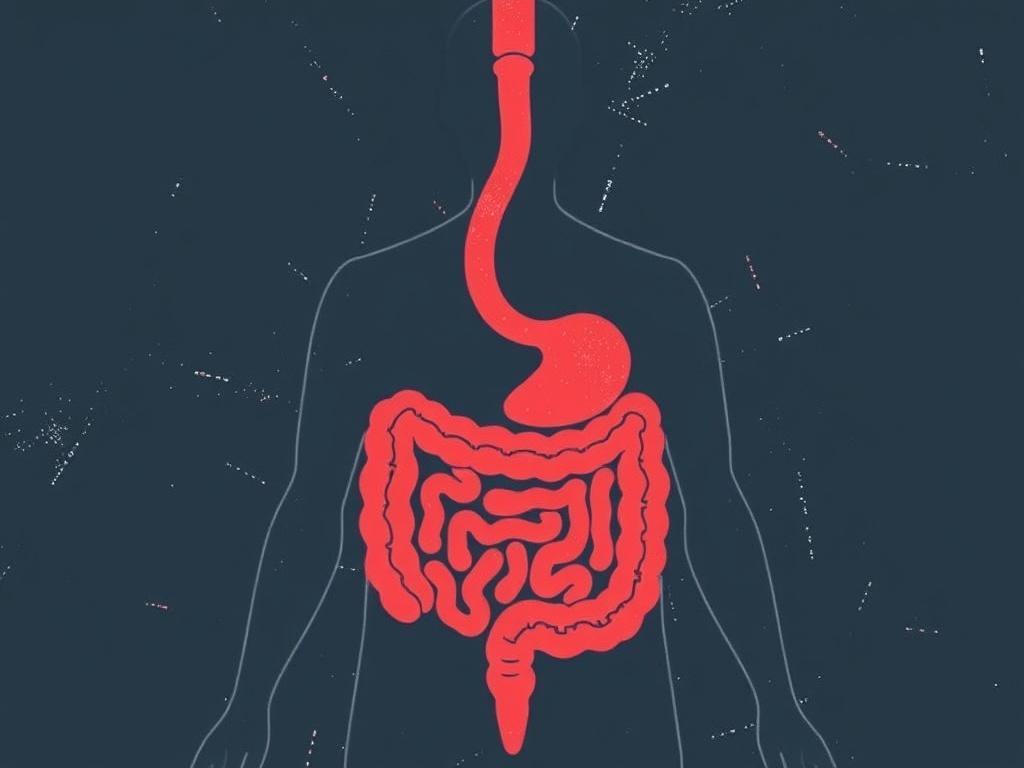
Your gut truly is your second brain. When anxiety and stress levels rise, your digestive system feels the impact. This connection means managing stress effectively is a crucial part of keeping your gut healthy and comfortable. By understanding how your body communicates stress to your digestive tract and adopting mindful habits for both your mind and digestion, you can reduce discomfort and improve your overall quality of life.
Conclusion

Stress and digestion are intricately connected, with anxiety having profound effects on how our gut functions. The gut-brain axis forms a constant pipeline of communication, meaning emotional tension directly influences digestive health. From stomach cramps and bloating to chronic conditions exacerbated by ongoing stress, the signs are clear: managing anxiety is essential not only for mental well-being but also for maintaining a healthy digestive system. Fortunately, practical lifestyle changes such as mindfulness practices, balanced nutrition, regular exercise, and professional support can effectively break the cycle of stress-induced digestive issues. Embracing these strategies allows you to tame anxiety, soothe your gut, and enjoy life with renewed vitality and comfort.
Читайте далее: